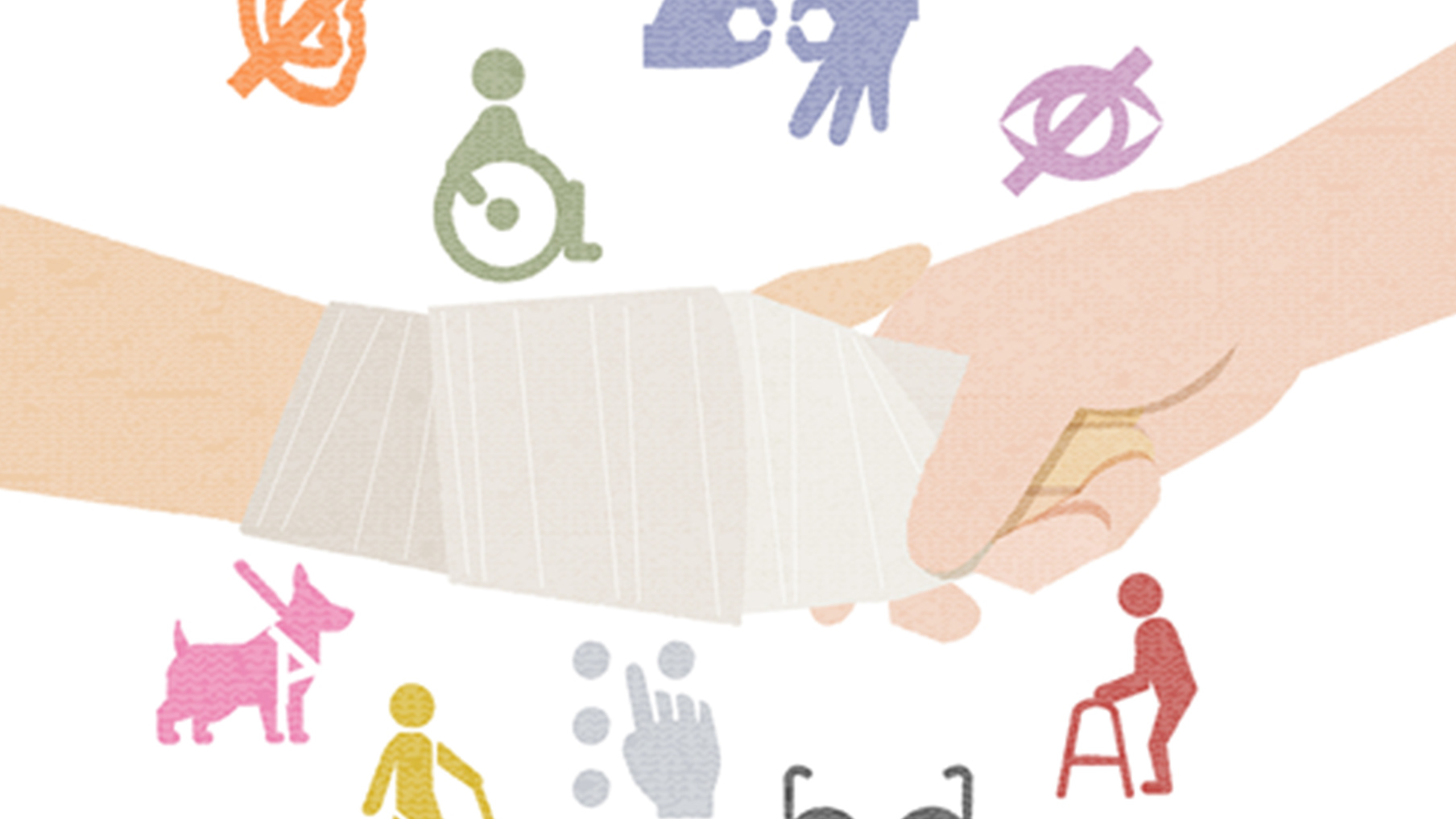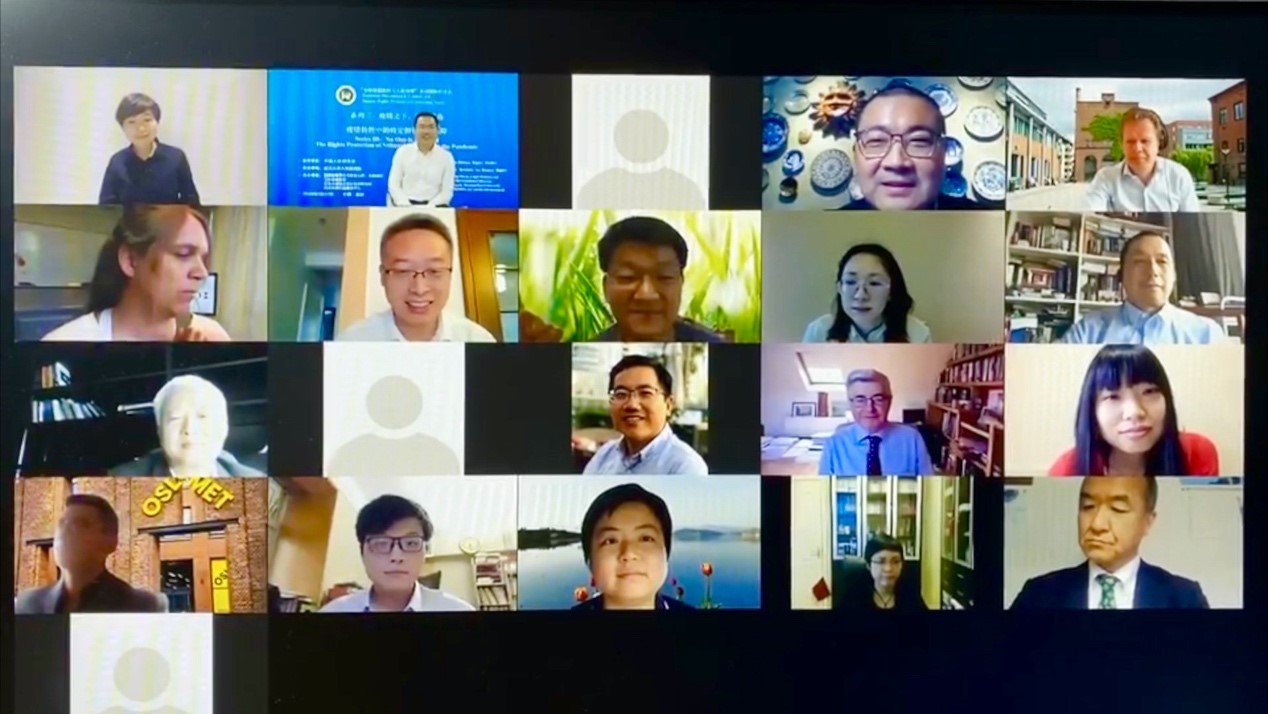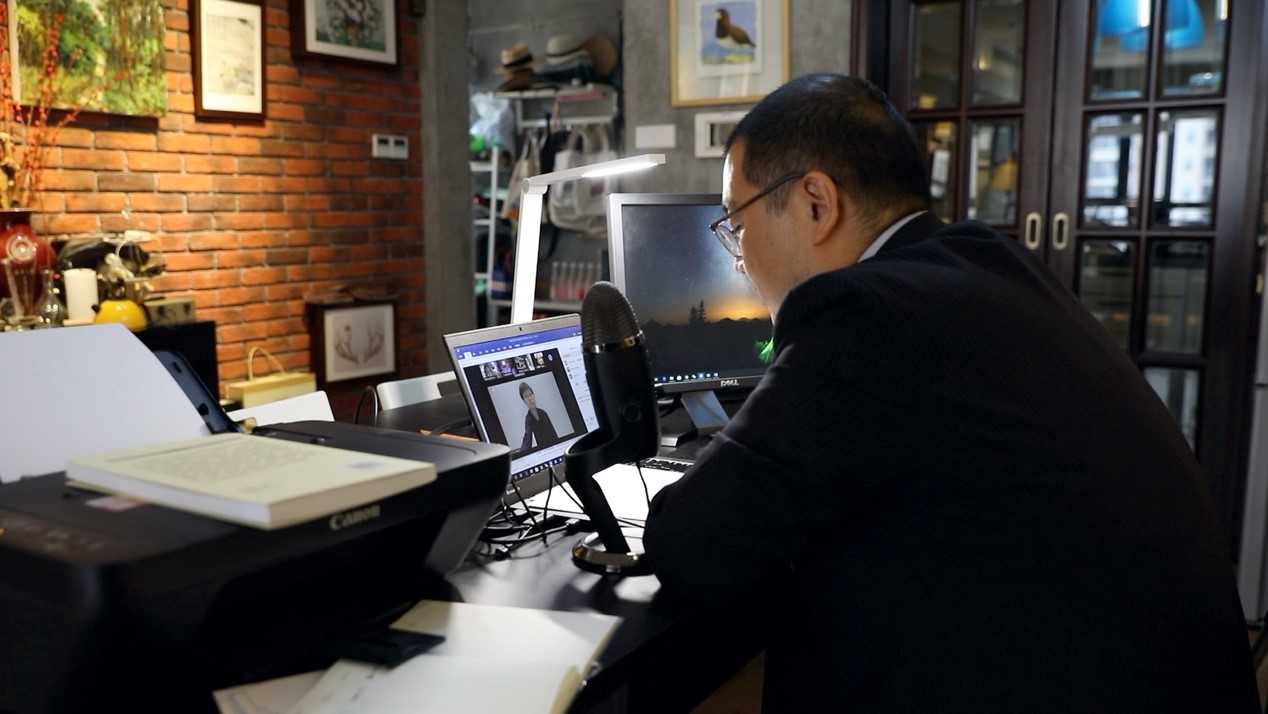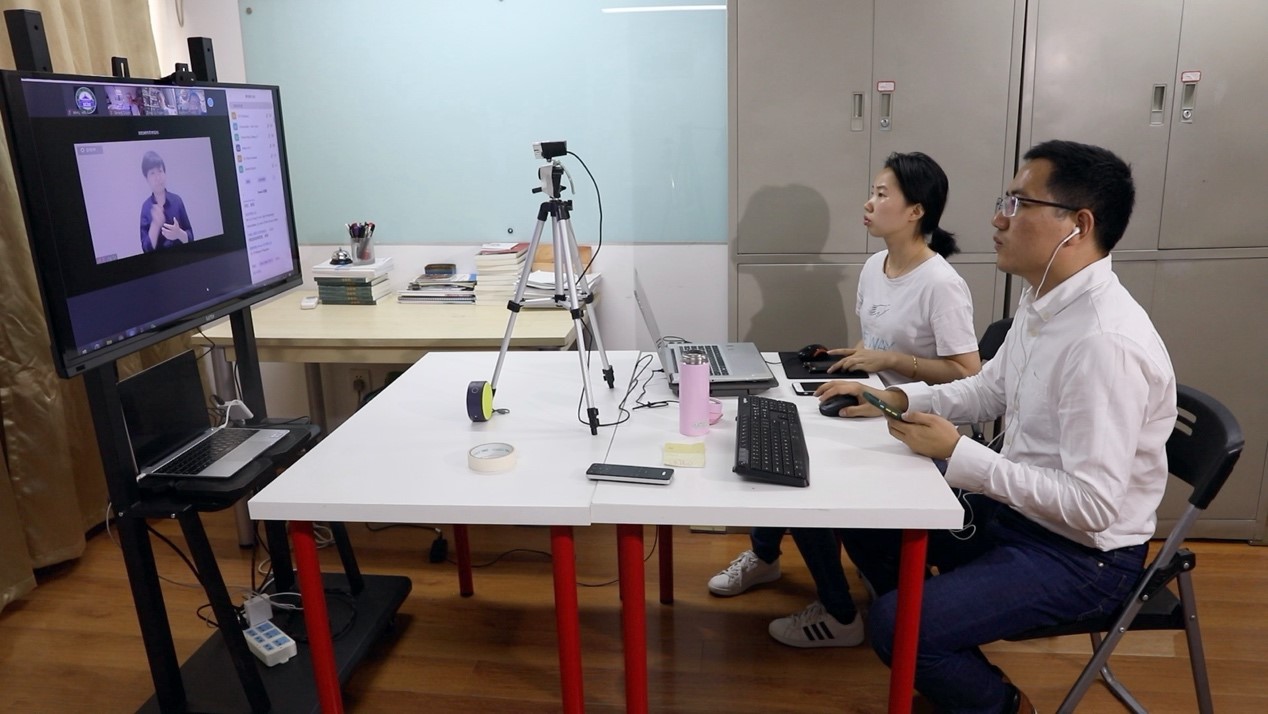02:52

"No one is an island" - this was the theme of an international video-call conference hosted in Wuhan on Saturday. Around 50 scholars from across the world joined the event, which aimed to address the needs of people with special needs during the COVID-19 pandemic, including those with disabilities, the elderly, women, children and foreign immigrants.
Professor Gerard Quinn from the University of Leeds in the UK pointed out in his speech: "A basic shared phenomenon between people with disabilities and vulnerable people, especially during crisis, is their invisibility."
"Some people with disabilities need more resources, for instance, some medical resources during the pandemic," added Professor Osamu Nagase from the Institute of Ars Vivendi, Ritsumeikan University in Japan.

Around 50 scholars from across the world joined the video-call conference in Wuhan, May 23, 2020. /CGTN Photo
Around 50 scholars from across the world joined the video-call conference in Wuhan, May 23, 2020. /CGTN Photo
More than 100 researchers, practitioners and people in vulnerable situations also watched the video conference via livestreaming platforms. A sign language translation service was also available.
The event was held by the Human Rights Studies Institute of Wuhan University. The conference was moderated by Professor Zhang Wanhong, one of the several scholars in Wuhan who joined the event from their homes.
"This kind of academic discussion is also a way to fight against the pandemic," said Zhang, executive director of the Human Rights Studies Institute, Wuhan University. "We hope this conference, hosted here in Wuhan, can also honor the great efforts and sacrifices made by the people of Wuhan."

Professor Zhang Wanhong hosts the video-call conference from his home in Wuhan, May 23, 2020. /CGTN Photo
Professor Zhang Wanhong hosts the video-call conference from his home in Wuhan, May 23, 2020. /CGTN Photo
Professor Zhang said Wuhan's lockdown measure didn't violate international human rights conventions. "In some specific emergencies, such as a public health crisis or war, when there's a need, certain human rights can be limited. But the limitation should follow some principles to ensure it complies with its purpose. In this sense, we believe Wuhan's lockdown measure was timely and necessary," he said.
Ding Peng is a doctoral candidate at the law school of Wuhan University. He is also the head of a social organization in the central Chinese city. He and his team have been offering a hand to many people with disabilities since the outbreak began.
"We've found the key problem among people with disabilities lies in their access to information on how to protect themselves, how to seek help, how to distinguish rumors and how to get authoritative information. So, we translated all of this information into sign language, made videos and posted them online to help people in need," Ding said.

Ding Peng joins the video-call conference in his office with his colleague, in Wuhan, May 23, 2020. /CGTN Photo
Ding Peng joins the video-call conference in his office with his colleague, in Wuhan, May 23, 2020. /CGTN Photo
Professor Zhang also pointed out women's predicaments amid the outbreak, such as inadequate supply of sanitary pads for female medical workers and a sudden jump in incidents of domestic violence since the stay-at-home orders were put in place.
They've also been helping in working on some guidelines to ensure the rights of people with special needs. "The China Disabled Persons' Federation has been drafting some brochures to ensure benefits and rights of people with disabilities amidst epidemic," he said, adding: "Our team has been translating documents from international agencies and foreign governments, which recorded their best practices in protecting the vulnerable. There will be some good information for us to use about how to protect people with special needs in China."